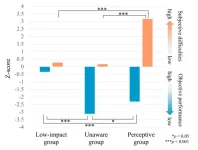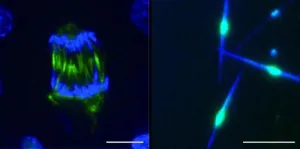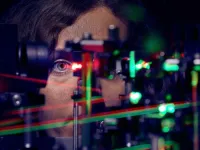Classification of schizophrenia into clinical subtypes based on objective and subjective social cognition
Schizophrenia is classified into three clinical subtypes, based on discrepancies between subjective social cognitive difficulties and actual cognitive impairment, providing a guidepost for individualized and targeted interventions
2024-10-29
(Press-News.org)
A research team led by Professor Takahiro Nemoto at Toho University, in collaboration with Associate Professor Naoki Hashimoto and Assistant Professor Ryo Okubo at Hokkaido University, and Dr. Satoru Ikezawa at the National Center of Neurology and Psychiatry explored the agreement or discrepancy between subjective social cognitive difficulties and actual cognitive impairment. The study aimed to identify clinical subtypes in patients with schizophrenia, the results of which were published in Springer-Nature’s journal Schizophrenia on October 29, 2024.
Key Points
In patients with schizophrenia, a decline in social cognition—a fundamental skill for interpersonal relationships—leads to increased difficulties in social life, and efforts to improve social cognition are gaining attention.
Although schizophrenia is characterized by the inability of patients to accurately self-evaluate symptoms and functional decline, the relationship between subjective difficulties and objective performance in social cognition remains unclear.
Patients with schizophrenia can be categorized into three clinical subtypes based on social cognition: the “low-impact group” (low levels of objective impairment and subjective difficulties), the “unaware group” (high levels of objective impairment with low levels of subjective difficulties), and the “perceptive group” (moderate levels of objective impairment and high levels of subjective difficulties). Among them, the “perceptive group” exhibited the lowest levels of social functioning.
The “low-impact group” accounted for approximately half of the patients examined, the "unaware group" for around 30%, and the “perceptive group” for roughly 20%.
Based on these findings, it is important for clinicians to recognize these clinical subtypes in schizophrenia and to tailor treatment for each patient through a careful consultation about their social cognition-related interpersonal difficulties.
END
[Attachments] See images for this press release:


ELSE PRESS RELEASES FROM THIS DATE:
2024-10-29
A pitiful sound from tinny speakers, sad virtual eyes, trembling robot arms: it doesn’t take much to feel sorry for a robot. This is the conclusion of a study by Marieke Wieringa, who will be defending her PhD thesis at Radboud University on 5 November. But she warns that our human compassion could also be exploited: just wait until companies find a revenue model for emotional manipulation by robots.
Objectively, we know that a robot cannot experience pain. Still, under certain circumstances, ...
2024-10-29
There is power in numbers, or so the saying goes. But in the ocean, scientists are finding that fish that group together don’t necessarily survive together. In some cases, the more fish there are, the larger a target they make for predators.
This is what MIT and Norwegian oceanographers observed recently when they explored a wide swath of ocean off the coast of Norway during the height of spawning season for capelin — a small Arctic fish about the size of an anchovy. Billions of capelin migrate each February from the edge of the Arctic ...
2024-10-29
A living cell is a bustling metropolis, with countless molecules and proteins navigating crowded spaces in every direction. Cell division is a grand event which completely transforms the landscape. The cell starts behaving like the host of an international competition, reconfiguring entire streets, relocating buildings and rerouting its transportation systems.
For decades, researchers have been captivated by the cell's ability to organise such a dramatic transformation. Central to the process is the microtubule cytoskeleton, a network of fibres which provides structural support and facilitates movement within the cell, ensuring that chromosomes ...
2024-10-29
Using laser-guided imaging to peer through dense jungle forests, Tulane University researchers have uncovered vast unexplored Maya settlements in Mexico and a better understanding of the ancient civilization's extent and complexity.
The new research, published in the journal Antiquity, was led by Tulane University anthropology doctoral student Luke Auld-Thomas and his advisor, Professor Marcello A. Canuto.
The team used lidar, a laser-based detection system, to survey 50 square miles of land in Campeche, Mexico, an area largely overlooked by archaeologists. Their findings included evidence of more than 6,500 pre-Hispanic structures, including a previously unknown ...
2024-10-29
AN EXPERT on missing persons and unidentified human remains is hoping her research can help bring about a change in the law.
Work carried out by Emma Tilley, who is completing her PhD in Criminology and Policing at University of Staffordshire, is included in a Law Commission public consultation on burial and cremation.
Emma, who has starred in Locate International’s Channel 4 documentary series The Body Detectives, has been critically reviewing the cross-matching of unidentified human remains ...
2024-10-29
Our ability to see starts with the light-sensitive photoreceptor cells in our eyes. A specific region of the retina, termed fovea, is responsible for sharp vision. Here, the color-sensitive cone photoreceptors allow us to detect even the smallest details. The density of these cells varies from person to person. Additionally, when we fixate on an object, our eyes make subtle, continuous movements, which also differ between individuals. Researchers from the University Hospital Bonn (UKB) and the University of Bonn have now investigated how sharp vision is linked to these tiny eye movements and ...
2024-10-29
Brisbane, Queensland, Australia (October 29, 2024) - In a revealing Genomic Press Interview published in Brain Medicine on October 29, 2024, Professor Vicki Clifton shares transformative discoveries about the placenta's unexpected influence on maternal mental health, potentially revolutionizing our understanding of pregnancy-related anxiety and depression.
Professor Clifton's team at the Mater Research Institute-University of Queensland has identified 13 distinct glucocorticoid receptor isoforms in the placenta, with one particular variant ...
2024-10-29
Barcelona, Spain (October 29, 2024) - In a compelling new Genomic Press Interview published in Brain Medicine, Dr. Raül Andero Galí reveals how his early passion for classical piano shaped his unique approach to neuroscience research. As an ICREA Research Professor at the Autonomous University of Barcelona, Dr. Andero Galí leads groundbreaking studies that connect mouse and human fear responses, potentially revolutionizing treatments for PTSD and anxiety disorders.
The intersection of stress and memory has captured Dr. Andero Galí's attention throughout his career. "All ...
2024-10-29
Pioneering research to protect and conserve Arctic whale populations is to begin under a new five-year collaboration between Heriot-Watt University in Edinburgh, Scotland and HX Expeditions (Hurtigruten Expeditions), a world leader in travel exploration.
The partners have signed a five-year Memorandum of Understanding (MoU), beginning in 2024, to research challenges facing marine life in the high Arctic – the most northern part of the Arctic region and one of the world’s most fragile ecosystems.
The agreement will see Heriot-Watt University and HX work together on the Whales & Arctic Vessels Project (WAVE), ...
2024-10-29
A genetic signature in newborns can predict neonatal sepsis before symptoms even start to show, according to a new study.
The study, led by UBC and SFU researchers in collaboration with the Medical Research Council (MRC) Unit The Gambia, has the potential to help healthcare workers diagnose babies earlier, including in lower- and middle-income countries (LMICs) where neonatal sepsis is of particular concern. The research, published today in eBiomedicine, is funded by the National Institutes of Health and the Canadian Institutes of Health Research.
“Neonatal sepsis is caused by the body’s irregular response ...
LAST 30 PRESS RELEASES:
[Press-News.org] Classification of schizophrenia into clinical subtypes based on objective and subjective social cognition
Schizophrenia is classified into three clinical subtypes, based on discrepancies between subjective social cognitive difficulties and actual cognitive impairment, providing a guidepost for individualized and targeted interventions







